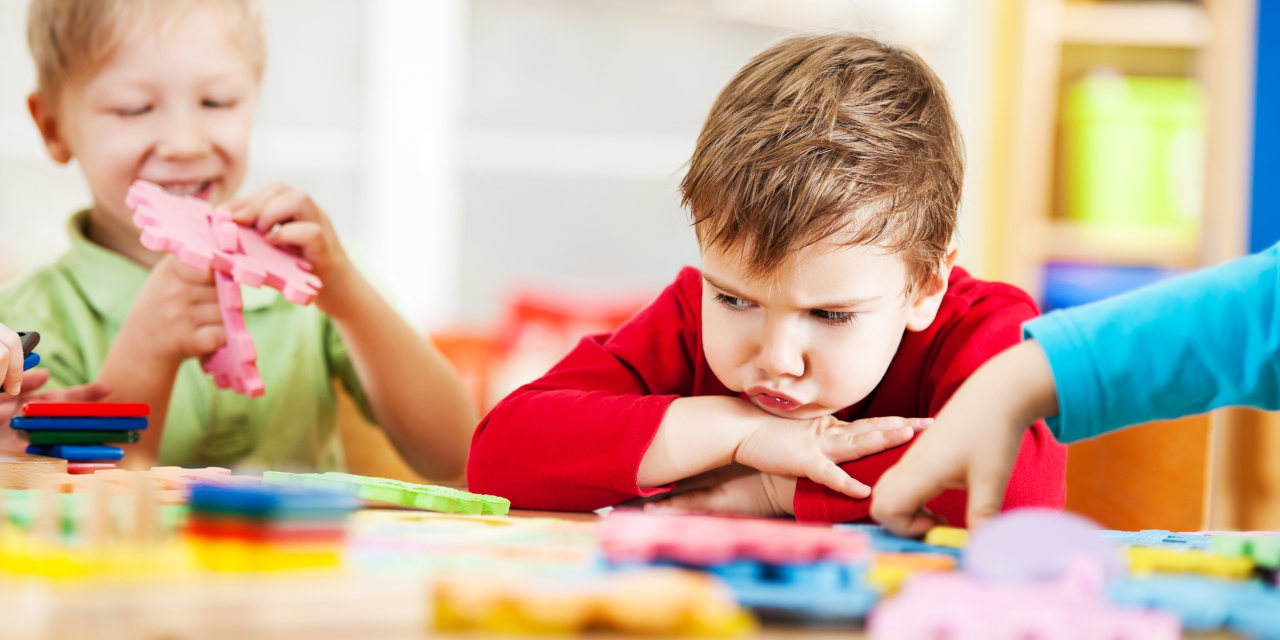Children with sadness and anxiety are more likely to experience relationships that deteriorate with their preschool teachers, a University of Alberta researcher has found.
Psychology PhD student Brenna Zatto studies emotional and social coping among preschoolers, an age group less studied than other children. She said adjustment problems-feelings of excessive sadness and fearfulness-begin earlier than most people think, making it more important to understand how problems emerge and develop.
"This is really the prime time when we should be getting in and using different measures to support these kids in this area," Zatto said. "The assumption is that these kids are too little to really understand or feel this way, but the research certainly contradicts that."
Adjustment problems affect relationship
Zatto's study is a collaboration through the PEERS Lab, the U of A's research team focused on the social and emotional development of vulnerable children, led by Wendy Hoglund, who was co-author of the study.
The team tracked more than 400 children at two low-income half-day preschools for the year-long study. In addition to surveys completed by teachers, research assistants carefully watched interactions with children in the teachers' care.
While previous studies assumed that the teacher-child relationship was the strongest predictor of a child's success in the preschool environment, Zatto found that this is not the case. The child's symptoms had a larger negative influence on how their teachers responded to their needs. Because of this, children who began the year with higher levels of sadness and anxiety typically had a less positive relationship with their teachers by the end of the year.
"A lot of studies assume that it's one way," Zatto said. "We found that it's the opposite of what most research has presumed."
Zatto suggested there are good reasons a child's state is so crucial to their experience in school. Preschool kids with adjustment problems are more likely to become dependent on their teachers, or act aggressively, she said, possibly provoking increasingly negative responses from teachers.
"Teachers are attending to the children, but in a negative way," Zatto said. "More than likely the teacher can become frustrated or exhausted, which might foster a negative relationship over the year."
Coaching may be key
Although the study is just a first piece in a largely unexplored field, Zatto said it might have implications for how preschools operate. Knowing a child has anxiety or sadness might be an opportunity to approach these cases proactively.
She also said there might be a need for professional development for teachers and mental health supports for the students-opportunities that aren't typically found in preschool settings.
Zatto sees promise in a program like My Teaching Partner, a U.S.-based system that partners teachers with coaches, who review videotaped lessons and provide feedback on how to handle situations differently. Another potential avenue is to increase the amount of peer activities, rather than more attention from the teacher.
It's also an opportunity to look further at an emerging field of study. Zatto has followed the same kids all the way to kindergarten, and her doctoral research will examine how preschoolers with anxiety and sadness handle their emotions.
"Kids who have a harder time regulating their emotions-especially when it comes to feeling sad or afraid-might be experiencing more negative symptoms," she said. "The strategies they use may be different than those who have better emotional regulation skills."
While studies of depression and anxiety have long focused on adolescence and adulthood, Zatto believes the problems emerge far earlier. Clinical levels of anxiety have been known to emerge in preschool, with large reviews noting that cases often show up by the time a child is entering grade school.
"It speaks to the need for early prevention and understanding how these children are adjusting to a formal school context, which they're going to experience for years," Zatto said. "We really need to understand what they're bringing to the context."
The study was supported by the Stollery Children's Hospital Foundation through the Women and Children's Health Research Institute.
